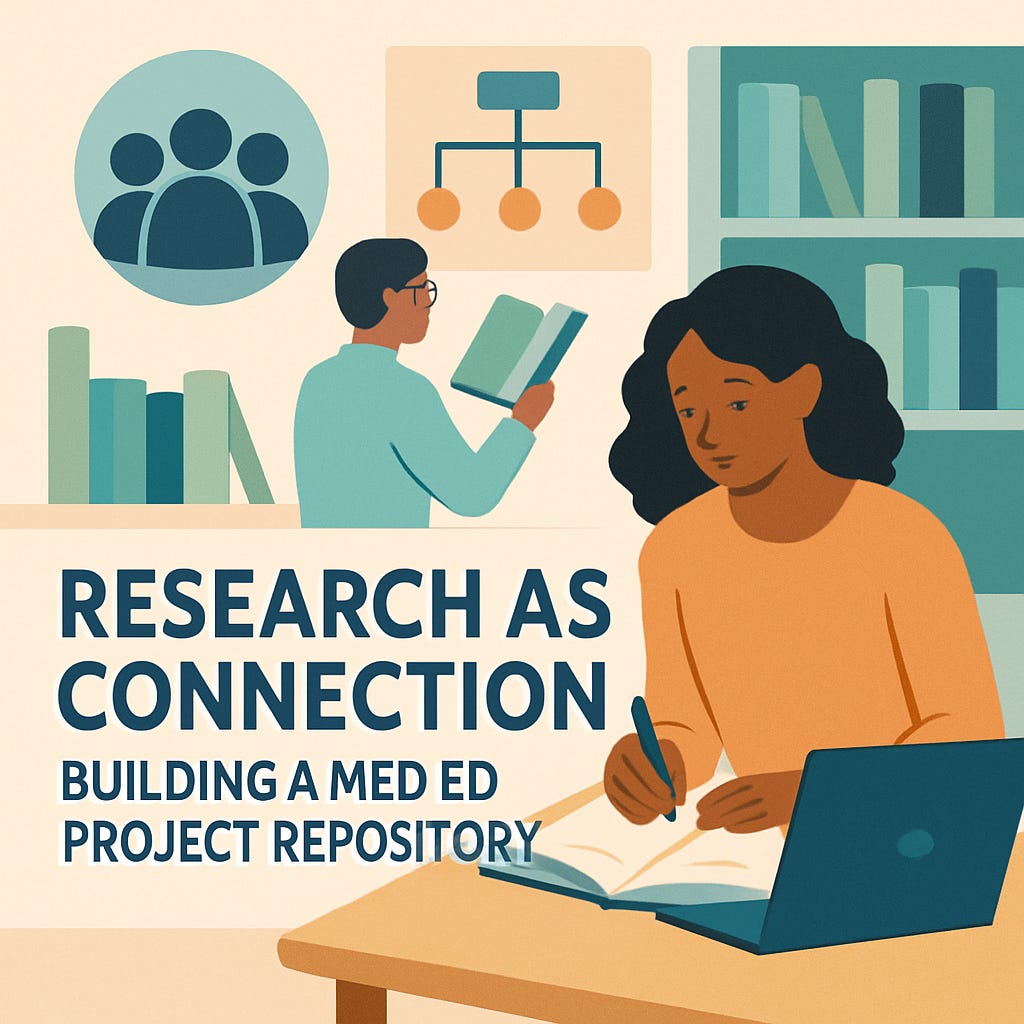Research as Connection: Building a Med Ed Project Repository
Aligning institutional insight and learner curiosity in one place
Residents often say: “I’d love to do research, but I don’t know where to start.” That’s where a Medical Education Project Repository can transform interest into action.
Why It Matters
Aspiring researchers don’t need another enrollment pitch. They need clarity and connection.
A repository makes research visible, accessible, and human-centered.
It celebrates institutional scholarship and invites learners into discovery.
How to Build Your Repository System
Collect and Share Projects
Create a shared Notion, Airtable, or cloud drive listing:
Ongoing and published studies
Current resident/faculty projects
Potential new research ideas
Contact info for faculty mentors
Tip: Add project status and best-fit candidates (e.g., QI, DEI, curriculum design).
Host a “Med Ed Open House”
Invite learners to a casual, virtual meetup:
Faculty briefly present projects
Residents share recent research experiences
Students and residents ask questions and connect
This builds community and demystifies how to get involved.
Offer Tools and Templates
Make starting easier with:
A sample IRB letter
A presentation slide template
Abstract-writing tips or checklist
These small additions reduce overwhelm and build momentum.
Recognize and Celebrate
Post wins: abstracts, posters, faculty co-authorships, clinical shifts informed by data. Celebrate consistency, even small projects matter.
Leadership Insight
“Knowledge grows when leaders make our research visible, accessible, and shared”.
By building a mature, connected repository, institutions not only support discovery, they build a culture of inquiry and shared learning.
Try This Checklist
Create a shared list of research/QI/education projects
Invite faculty to submit opportunities and contact info
Plan a short open-house or info session
Provide accessible tools for newcomers (notes, templates, guides)
Share a project highlight or outcome every month in your forums.
This is not just about data, it’s about culture. It’s how we build pipelines of inquiry, mentorship, and belonging.


